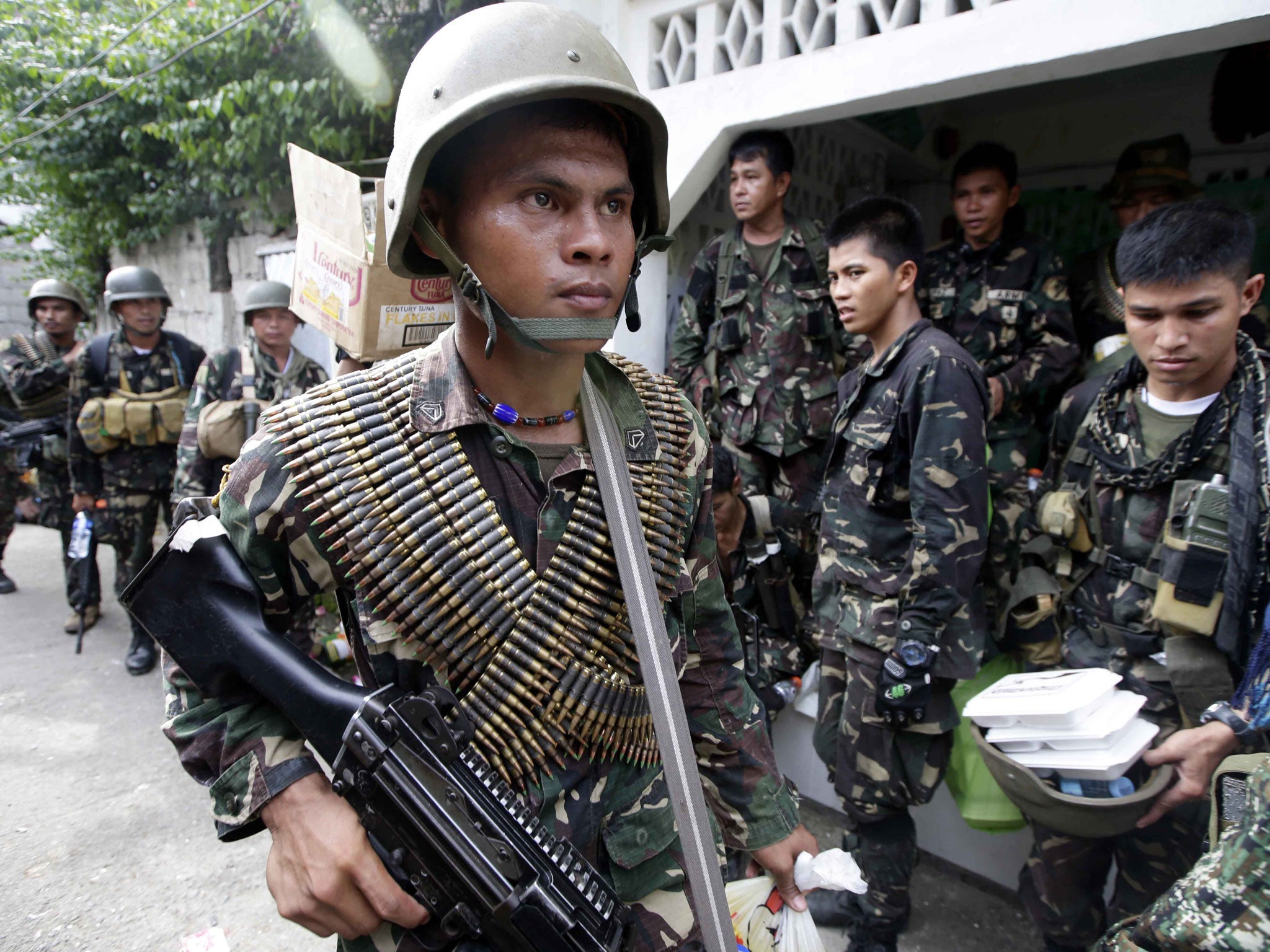Muslim guerrillas killed as Filipino army assault frees scores of hostages
Insurgents demanding money for neglected Islamic regions

Philippine forces have killed or captured nearly 100 of the Muslim guerrillas who have held scores of hostages for a week in the southern city of Zamboanga, as the government pushes ahead with an offensive to retake rebel-held coastal communities.
Army troops and police have regained rebel-held grounds and are pressing an assault deeper into communities in the coastal outskirts of Zamboanga, where more than 100 Moro National Liberation Front guerrillas are holding hostages, military spokesman Lt Col Ramon Zagala said yesterday.
Several hostages have escaped or were freed, but it was unclear how many were still in rebel custody. Zamboanga city Mayor, Isabelle Climaco-Salazar, said the rebels were still holding up to 40 hostages in one community alone.
Lt Col Zagala said troops taking part in the offensive were trying to avoid harming civilians. “We’re gaining ground, we’re pushing forward,” he said.
At least 51 rebels have been killed and 42 others captured, most while trying to escape along the coast after discarding their camouflage uniforms for ordinary clothes, Interior Secretary Mar Roxas said, adding that the gunmen would face criminal charges. The bodies of two rebels, a man and a woman, were found yesterday by troops.
Six policemen and soldiers, along with four villagers, have been killed in the stand-off, which began last Monday when troops foiled an attempt by the rebels to march and hoist their flag at Zamboanga’s city hall. The rebels, who arrived by boat from outlying islands, barged into five coastal villages and took more than 100 hostages as human shields.
Army troops and police, backed by helicopters and navy gunboats, initially surrounded the rebels with their hostages while government officials tried to convince the insurgents to free their captives and surrender.
But government forces decided to attack on Friday after the guerrillas started setting on fire clusters of houses and fired mortar rounds that wounded several Red Cross aid workers, Lt Col Zagala said.
While the government’s offensive is gaining momentum, Mr Roxas said it is difficult to tell when the troops will be able to end the standoff, which has displaced more than 67,000 residents.
The crisis has virtually paralysed the port city of nearly a million people, after authorities closed its international airport, suspended sea ferry services and shut down schools and offices. Officials of a Zamboanga city hospital evacuated 472 patients as clashes erupted nearby last week. Yesterday they pleaded to the military to help them return to the hospital to retrieve ventilators, anaesthesia machines and other equipment.
The Moro insurgents, led by rebel leader Nur Misuari, signed a peace deal in 1996, but the guerrillas did not lay down their arms and later accused the government of reneging on a promise to develop long-neglected Muslim regions in the south of the predominantly Roman Catholic nation.
The rebels have become increasingly restive in recent months as they’ve been overshadowed by a rival rebel group that engaged President Benigno Aquino III’s government in peace talks brokered by Malaysia. The talks have steadily progressed toward a potentially larger autonomy deal for minority Muslims in the south.
AP
Join our commenting forum
Join thought-provoking conversations, follow other Independent readers and see their replies
Comments
Bookmark popover
Removed from bookmarks